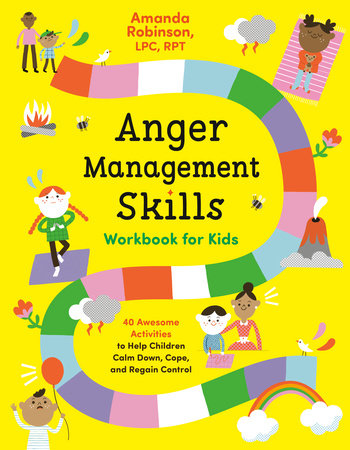7 Tips to Help Your Child Manage Their Anger
by Amanda Robinson
Have you ever wondered how you should respond to your child’s angry feelings and behaviors? As a therapist, I understand how overwhelming these situations can be. Here are seven practical tips that you can use to help your child manage their anger.
1. Intervene Early
Children don’t often go from happy to enraged in one second — there’s typically a slow build-up of stress and frustration that leads to an explosion. Keep a careful eye on what your child’s triggers may be, and when you see the irritation churning intervene before it gets worse. This might look like, “I see you getting frustrated by your art project. Why don’t you take a break and come back to it later?”
2. Remain Calm
Seeing a child physically or verbally lash out can be intense, and it understandably brings up feelings in the adult, too. However, it’s not possible to help a child get calm when you are also reacting with frustration! Take deep breaths and slow down the interaction. If you’re about to say or do unhelpful things, call a time-out and come back to the conversation when everyone has calmed down.
3. Remember That Their Behavior is Not a Reflection of You
Believing that your child’s behavior is a symbol of how good or bad you are as a caregiver often makes you feel embarrassed and angry. You may then react in ways you later regret. Instead, remind yourself that behavior communicates how a child feels under the surface. Kids who behave this way are not trying to torture you; they’re struggling emotionally, and they need your help.
4. Acknowledge Their Feelings
No child has ever been calmed by an adult telling them, “Calm down, it’s not that big of a deal.” Even if you think their anger is way out of proportion to the event, show them empathy anyway. Try saying, “I know you’re angry that I won’t let you have ice cream. It’s really hard for you to hear a no.” Not only are you teaching your child how to verbalize their feelings, they’ll also be more likely to cooperate with you if they feel understood. Two birds, one stone.
5. Learn to Let Certain Things Go
Does your child get in trouble with you if they cross their arms, stomp away, or yell about how life isn’t fair? Consider letting these behaviors go. They’re maddening, yes, but children should have the right to express their anger, and it’s not going to come out in a mature way because their brains aren’t yet mature. (This is hard even for adults sometimes!)
6. Set Boundaries
Although it’s crucial to stay calm and show compassion, that doesn’t mean you should ignore unacceptable behaviors like damaging property or hurting others. When your child does these things, give them an alternative way to release their anger. This can look like, “I’m not for hitting, but you can hit the pillow or the couch.”
Don’t hand out consequences during the heat of the moment, because that will only add fuel to the fire. When things are calm again, you can (gently) dole out the consequence.
7. Praise Any Sign of Progress
Children with anger problems get lectures and consequences all day long. They’re often hungry for adults to notice that they’re trying to change! If your child frequently hits others during bouts of anger and instead chooses to hit a pillow or stomp their feet, wait until they’re calm, and then tell them how proud you are of their new behavior. They’ll be more likely to repeat the improved behavior in the future.
To help your child learn more about their anger, how to express it helpfully, and how to find calm, check out Anger Management Skills Workbook for Kids.

